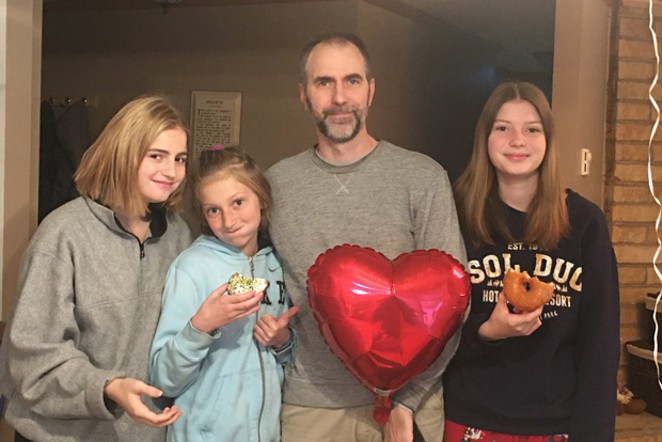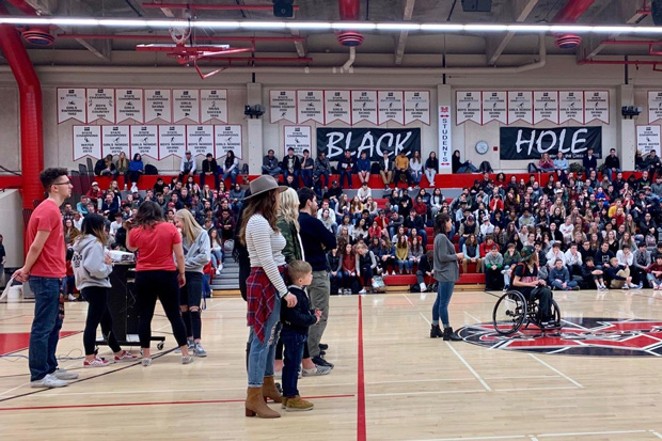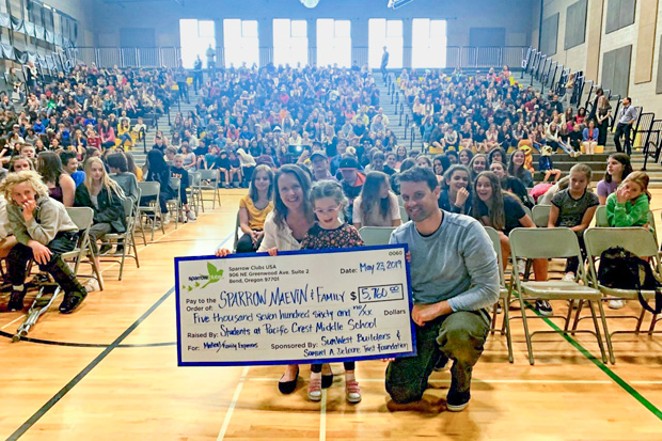Among pandemic business casualties, nonprofits face a challenging era. It can be assumed that most organizations feel that pinch in sponsorship losses. Sparrow Clubs, a nonprofit organization that financially aids families with children in medical need, says it's not struggling with funds, but instead, with finding families to receive their help.
"I don't have as many applications as I normally would. I think some families assume that they can't get into a school, that there's no funding. Normally we have 15 to 20 Sparrows each year; this year I have three," said Nancy Childers, Sparrow Clubs' regional director for Central Oregon.

The mission of Sparrow Clubs is to connect medically compromised children, 0-18 years old, with a local school that then adopts the child as its "Sparrow" for a school year. School projects are sponsored by a company or organization, which donates $2,560 to the family. Then, a school's student body matches those funds with 256 hours of community service. Students get empowered to help others, while children and families gain support.
"Sparrow is awesome. They've provided funding for whatever we need. It can be for bills, for groceries, for school. It's been super helpful knowing that it's available even if that's for part of a house payment or an electric bill," said Cheryl Bartz, a Sparrow recipient. Bartz's 10-year-old daughter PJ was diagnosed with restrictive cardiomyopathy in July. The family joined Sparrow Clubs in Bend in September of 2019 as Lava Ridge Elementary Schools's Sparrow.
The $2,560 given to the Bartz family is the highest fund promised to Sparrows—though local high schools notoriously exceed this amount with independent fundraising through school-led pageants. Summit High School's Thunder Pageant, Mountain View's Cougar Pageant and Bend's Mr. BHS have raised tens of thousands of dollars for Sparrows in past years. Last year, Summit's Thunder Pageant raised $52,000 for its Sparrow, Titan. This year, the district-wide freeze on fundraising has made the pageants look a lot different.
"There will be a virtual application and virtual voting," explained Mimi Dioguardi, Thunder director. "Rehearsals and meetings will have to be socially distanced or virtual. It's through the school, so we have to work with their policies."
High school projects are typically announced at "kickoff assemblies" at local schools—but the constraints of distance learning have made them moot this year.
"At the assembly I tell the students that all it takes is an hour of community service to help and then I ask the students to stand up if they are willing to do that. The whole auditorium goes silent and you just watch as one by one every student stands up, everybody is clapping and cheering, the family is in tears. It's heartwarming," said Childers.
This year, that's all transferring to virtual platforms. Due to pandemic related restrictions, some schools that normally do Sparrow projects are holding off or passing this year. For schools that continue the projects virtually, student outreach will continue to impact the families.
"The money is helpful so that your electricity stays on, but the community outreach, seeing the support from other families and children, has been the big reward," said Bartz.

Childers explains that for most Sparrow families, this is the reality.
"We're not Make a Wish and our families know that. To some of them, $2,560 is a lot of money, but for those facing humongous medical bills it's a drop in the bucket. The bigger picture is how their child's story is going to have an impact on students and the community," said Childers.
"These students realize that they do matter, that they can make a difference. Even if life isn't treating them great right now, they can do an hour of community service and help a family in need," said Childers. "Even if the sponsor can't match the hours that the school raises, it pays off in compassion towards the family. The win is that the community got more out of the project."
This year, families with medically compromised children have experienced extreme isolation from their communities. The threat of infection is too high a risk.
"We haven't been able to have much contact with friends; that aspect has been really difficult," said Bartz. "She has some neighborhood friends that she can play with outside, socially distanced, but sometimes those families are in contact with other families and feel that they need to spend a couple weeks away from PJ."
Those interested in learning more about Sparrow Clubs—either to donate or to take part as a Sparrow family—can visit sparrowclubs.org.








